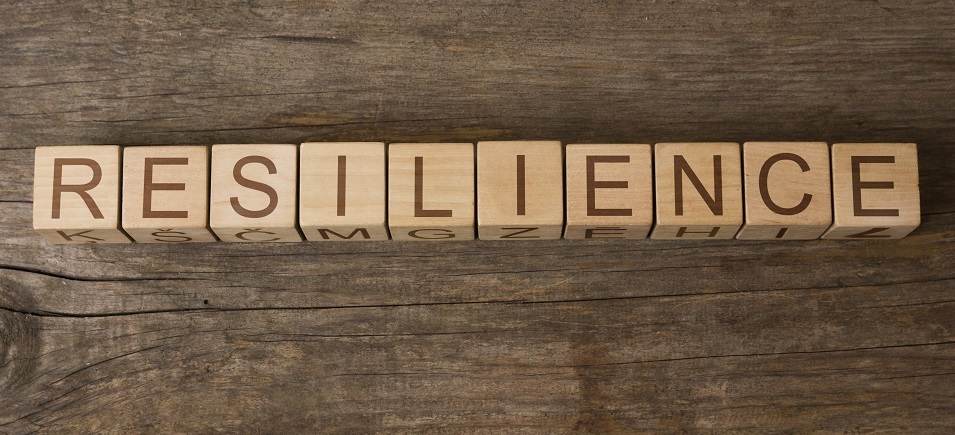
As students return from what is arguably the longest spring break any of them have ever experienced, they are re-entering a world profoundly different from when they last left.
While September is normally a month of back to school stress, both positive and negative, no one is pretending that September 2020 is anything close to normal. For parents, the worries about gathering school supplies and buying expensive new shoes have been joined by fears related to the pandemic and guilt for sending their children out into the world—or for keeping them home.
As parent, we fear for our children in times like these, not only for their physical safety but for their psychological safety. We worry about how these current times will affect their mental health and development.
What is the appropriate amount of anxiety to feel when sending your children back to school, or starting to homeschool, in the midst of a pandemic? Surely a constant level of mild panic is appropriate. After all, living through these difficult times is likely to emotionally devastate our children’s lives—and our own—for years to come… won’t it?
Thankfully, living through difficult times need not negatively impact our children in the long run. The answer lies in how our brains are built, how they function, and how we can use them to build in psychological protections.
Social psychologist Dr. Dan Gilbert, professor of psychology at Harvard University, points out that our prefrontal cortex—located at the front of our skull, right above the eyes—is the most advanced part of our nervous system. Responsible for our reason, judgment, critical thinking, and other higher functions, the prefrontal cortex is the most recently evolved part of our brain. It also can have a protective effect against the mental impact of hardships.
In his truly excellent TED Talk “The Surprising Science of Happiness,” Gilbert discusses how the prefrontal cortex also serves another important function: to help us predict the future, or at least to speculate on a number of possible futures, determine which of them is desirable/not desirable, and decide which is most likely.
Unfortunately, most of us have a tendency to overemphasize the negative possible futures and their likelihood, and downplay the positive ones. We fixate on the bad, the unchangeable, and the might-have-beens, and tend to expect they will affect us to a large degree. This is what’s known as “impact bias”—the human tendency to overestimate the duration and intensity of a future negative emotional state.
In fact, we can believe in these negative outcomes so strongly that we almost guarantee them coming to pass.
Gilbert notes that this need not always be the case, and that when we focus on the positives (both here and now, and the positives that may come in the future) our expectations are often fulfilled.
Impact bias can work in reverse, and when we keep in mind the positive outcomes we can actually help bring them into reality as well, improving our mental health and overall happiness.
Social psychologists like Gilbert call this our “psychological immune system,” and it can help us to build up one of our most important traits: resiliency, or the ability to recover from challenges or hardships.
As useful as it can be to learn that we have a psychological immune system which can kick in when we’re in dire straits, when you know a parent who’s struggling with anxiety over their child’s schooling during the pandemic, it isn’t always useful to extol the virtues and benefits of positive thinking. If you yourself are a parent dealing with some of these fears, you might be wanting something a little more practical to help you deal with both your anxieties and your children’s.
Thankfully, even in the time of COVID-19, there are steps we can take to ensure less anxiety, and better mental health, for us and our kids.
Children are naturally resilient, and thanks to their growing brains and our psychological immune systems this is a trait you can nurture and help grow. Our children may come out of this even better than we will as their parents, especially if we encourage their resilient tendencies. Psychologists have determined several factors that help resilience to grow, including maintaining optimism about the future, like Dr. Gilbert discussed.
Another factor that increases resilience is emotional regulation, or the ability to control one’s emotional state and reactions to circumstances. We regulate our emotions by thinking about the events that affect us, by challenging negative patterns of thinking and by verbally processing our feelings. Many parents are taking this as an opportunity to talk about their children’s fears, and this is excellent.
This is also a good time to give our children more language to describe their emotions, since increased emotional vocabulary has been linked to better emotional regulation skills. Teach your children words for their complex emotions, words like “ambivalence,” “ isolated,” and “bittersweet.” The more words they have to describe how they’re feeling, the better they will understand how they are feeling.
A third strategy shown to increase resilience is to establish and maintain clear values, and check in with how well we’re maintaining them. Some families discuss morality with their children only about certain subjects—such as not stealing, hitting, or swearing—whereas others prefer to leave those conversations for the Sunday school teacher. Resilient people, though, tend to have a solid understanding of their own moral standards, and these standards help keep them steady during difficult times.
When it comes to building resilience in your children, this may be a good time to have some specific value-oriented conversations. For instance, talk about values like “acting for the common good,” which is a big reason for people to wear masks in public.
These are tough times, and speaking as a parent of school-age children, I have immediate and intimate appreciation for the fears many parents are experiencing right now. But this time is also an opportunity to help our children grow to become strong, resilient adults.
In the same way that doctors are working to develop a COVID-19 vaccine, hopefully some day soon, to strengthen our physical immune systems, we can also help to strengthen our children’s psychological immune systems to strengthen by focusing on the positive possibilities in the world today, growing their emotional regulation skills and helping them to establish values that will keep them steady in an unsteady world.




















